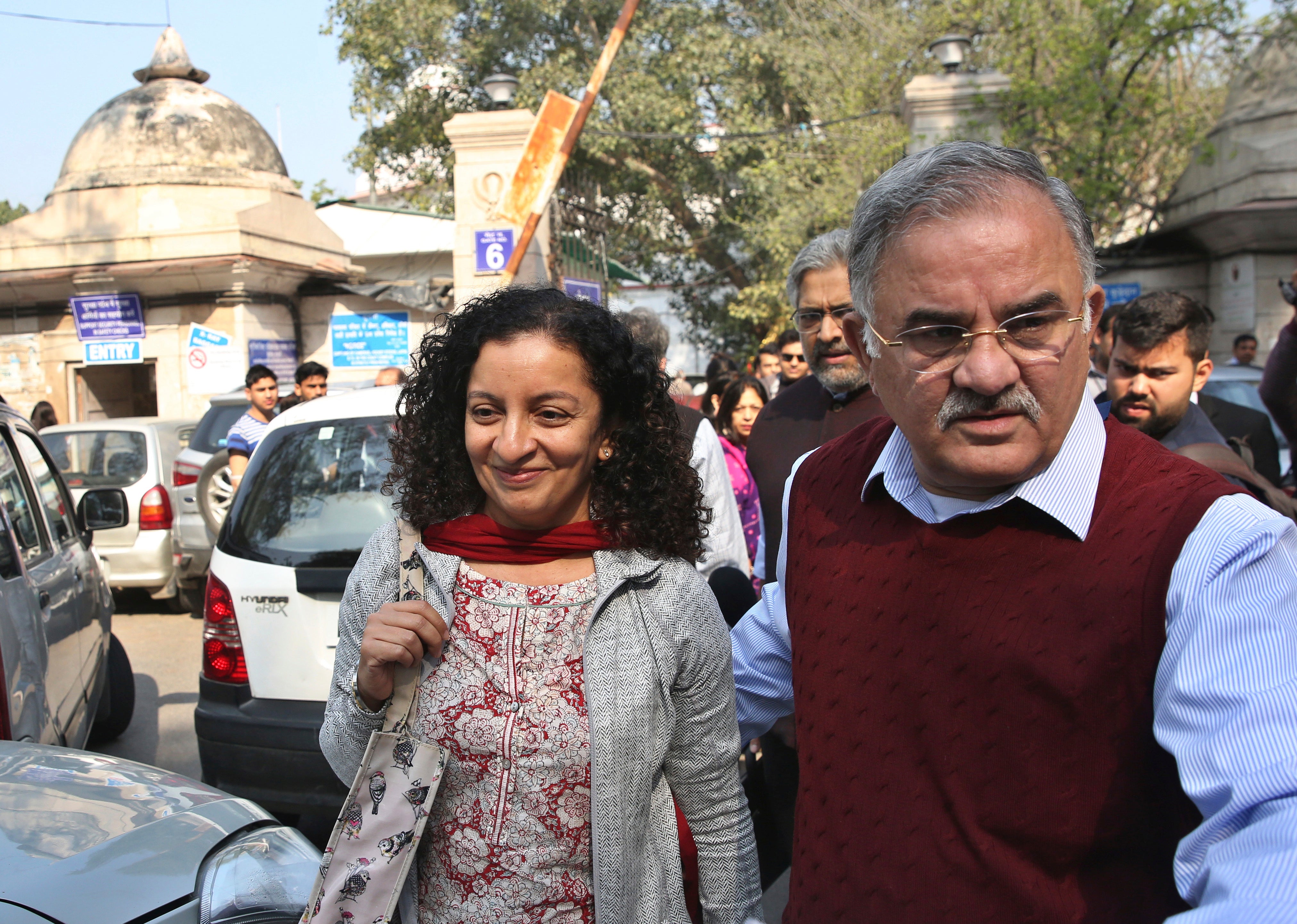Landmark victory for India’s MeToo movement as Delhi court strikes down defamation claim
‘Right of reputation can’t be protected at the cost of right to dignity’

Your support helps us to tell the story
From reproductive rights to climate change to Big Tech, The Independent is on the ground when the story is developing. Whether it's investigating the financials of Elon Musk's pro-Trump PAC or producing our latest documentary, 'The A Word', which shines a light on the American women fighting for reproductive rights, we know how important it is to parse out the facts from the messaging.
At such a critical moment in US history, we need reporters on the ground. Your donation allows us to keep sending journalists to speak to both sides of the story.
The Independent is trusted by Americans across the entire political spectrum. And unlike many other quality news outlets, we choose not to lock Americans out of our reporting and analysis with paywalls. We believe quality journalism should be available to everyone, paid for by those who can afford it.
Your support makes all the difference.In a landmark ruling on a case that has defined India’s MeToo movement, a Delhi court on Wednesday struck down the criminal defamation lawsuit brought by a former government minister against a woman journalist who accused him of sexual harassment.
Acquitting Priya Ramani in the case initiated by former foreign minister MJ Akbar, additional chief metropolitan magistrate Ravindra Kumar Pandey observed that “a woman has the right to put her grievance, even after decades”.
The court also noted the social stigma attached to such allegations, and said that society must understand the impact of sexual abuse and harassment on its victims. Justice Pandey observed that “even a man of social status can be a sexual harasser” and that the “right of reputation can’t be protected at the cost of right to dignity”.
“Truth and the absolute truth is my only defence,” Ms Ramani had maintained throughout the trial.
The lawsuit marked a milestone in India’s MeToo movement, which swept across social media in October 2018 sparking conversations about consent, workplace sexual harassment, minority rights, and caste- and gender-based violence.
Mr Akbar, 70, is a former newspaper editor who was accused by multiple women of inappropriate behaviour, including sexual assault by women journalists.
The verdict was initially due be pronounced on 10 February, but was deferred to Wednesday and issued after a further agonising delay on the day.
“It feels amazing, it really does,” Ms Ramani told reporters soon after the verdict was pronounced. In her testimony in court, she had stated that in December 1993, Mr Akbar had sexually harassed her at a room at The Oberoi hotel in Mumbai when she had gone there to meet him for a job interview.
Ms Ramani had pleaded truth, good faith, public interest and public good as her defence. Her lawyer Rebecca John said it was “the most important case of my lifetime.” Mr Akbar was represented by advocates Geeta Luthra and Sandeep Kapur.
The court also noted that both parties can file an appeal in case of any grievance and asked Ms Ramani to furnish a bail bond in case an appeal is preferred, the legal news website Bar and Bench reported.
Women responded emotionally to the news of Ms Ramani’s acquittal, saying it felt like a personal victory in a country where rampant patriarchy makes it difficult for women to speak up.
“Ok now I’m really crying,” tweeted journalist Riddhi Dastidar. “Didn’t expect to be but this feels so personal. I bet a lot of survivors are crying today. thank you to Priya Ramani, Ghazala Wahab and everyone who fought & spoke up. from many of us who never got to have our trauma addressed or validated. thank you [sic].”
“It was me the victim who had to stand up in the court as an accused. I thank everyone who stood by me, especially my witnesses Ghazala Wahab and Niloufer Venkatraman, who came to the court and testified on my behalf. I thank the court for the verdict and I thank my lawyer Rebecca John and the amazing team who believed in me and the wider cause. They put their heart and soul in the case,” Ms Ramani said.
Following outcry on social media, Mr Akbar resigned his post of as junior external affairs minister in October, 2018.
The judge also observed that “the Indian Constitution allows women to put forward her grievances before any forum and at any time,” indicating that the established avenues of due legal process are often out of reach of victims, and acknowledging the important role social media played in platforming of stories of survivors.




Join our commenting forum
Join thought-provoking conversations, follow other Independent readers and see their replies
Comments